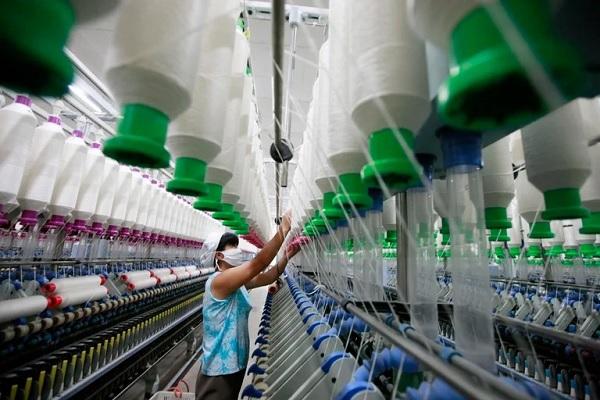It sells wholesale and retail throughout the country, but the company's forte is consignment sales.
The firm arose as a spin-off of an old family business that was in crisis.
From olives to cheeses: the story behind Nucete, the Argentine company that reinvented itself
"There was a surplus stock and we began to give it to known people so that they could sell it among their relatives and since things seemed to work well, the idea was developed on a scale and a new company was created. For this, it was necessary to develop software to measure, which allowed monitoring of the management, and then progress by trial and error", explains Alejandro Nuss, founder, general manager and majority shareholder of Brandel, an SME that was born in 2003.
The business is round and it works. In 2021, they sold 50,000 garments through the consignment sales system, 12,000 wholesale and 1,000 retail.
Today, Brandel has physical branches in Buenos Aires, Córdoba and Rosario, which function as a distribution center, but do not serve the public.

2021 meant the consolidation of the deep reengineering process started in 2019 as a result of the pandemic. Before, the resellers went on to supply themselves in the branches, but now it is the company that comes to their homes carrying the merchandise that they ordered via the web, on the brand's website.
Inspired by the model Yunus
Above all, the idea of basing the business on trust in others and not requiring guarantees to grant credit. Muhammad Yunus, known as the banker of the poor, is an economist and winner of the Nobel Peace Prize in 2006. He founded the Grameen Bank, a microfinance institution, which Grants small loans to entrepreneurs with fewer financial resources. The system does not require a material guarantee but solidarity, as it is based on mutual trust. The microcredits are repaid after 25 weeks in weekly meetings with compulsory attendance that take place in the Credit Centers. The high percentage of recovery is higher than 97%.
At Brandel, women who want to start selling must meet the minimum requirements: provide personal information and references. Nothing else. "I know it may sound little, but it is so. The business is based on trust. They receive the clothes without having to invest money, they just have to commit to going out to sell in their circle of relationships looking for clients among their acquaintances and asking for referrals. They ask what they want, they pay for what they sell and what they don't, they give back," says Nuss.
The investment is zero. They are only charged for shipping which is around $500. There is always a discount if they reach the minimum sale: if you sell 3 garments, half is discounted, if you sell 6 or more the total. They also have the permanent guidance of a trainer.
Type of clothing
They offer women's casual clothing and a line of special sizes. This year they began to venture into sportswear. Prices? T-shirts from $2,400, blouses $3,200, jeans $6,000, etc. The profit is 40%, but since the more they sell, the less they pay, it can reach 80%, as the volume of sales increases, the unit cost of each garment they sell decreases.
For example, a garment that costs them $2,000 from the firm, they suggest selling it for 40% more, that is, $2,800 with a profit of $800. But, if you sell 20 pieces per week, you reach the highest category and that $2,000 goes down to $1,520. So the unit profit becomes $1,280 (the final retail price is still $2,800, 84% more than the cost price you pay).
Women in hierarchical positions
In this SME, which employs 40 people, managerial and executive positions are held by women, who began working at the company more than ten years ago. As for resellers, there are 500 active women and only a couple of exceptional cases of reselling men. Key to success? Commitment, dedication, training and planning based on what they sell.
"We like to say that we don't sell clothes but a business opportunity without the need to invest money, where the clothes we offer are the tool through which they can develop professionally", concludes the businessman .
48 Best Parka For Extreme Cold In 2021 Based On 7300 Reviews
Coronavirus Mexico July 4; summary of the latest news, infections and deaths
Bertín Osborne gives Pablo Motos a zasca for 'El Hormiguero': "You don't spend the money"
The dandies of the Congo